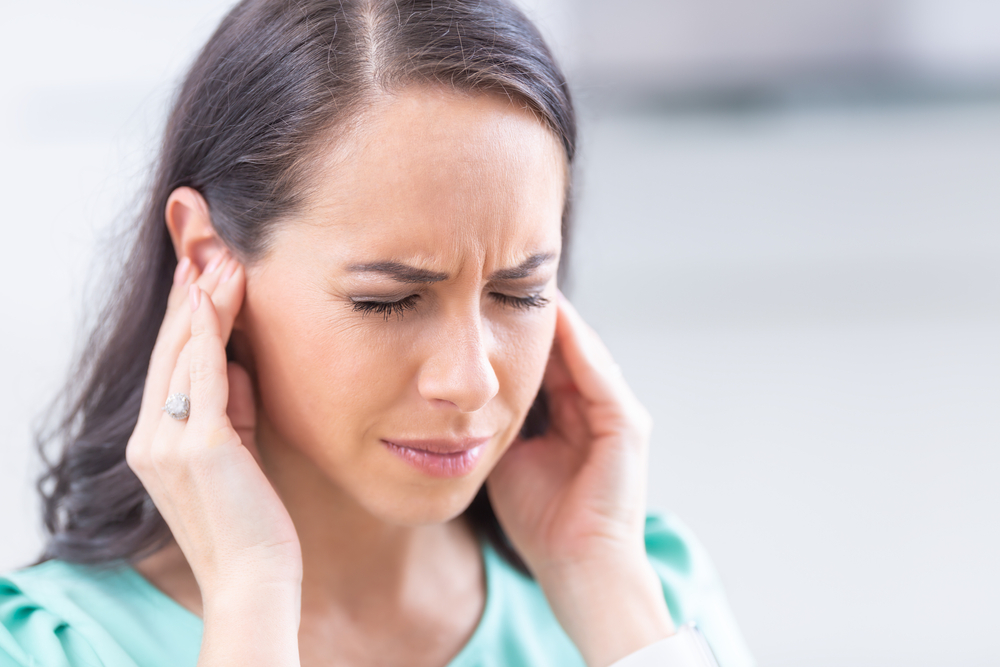
Sensorineural Hearing Loss: Symptoms, Causes, and Treatments
For the vast majority of people affected by hearing loss, the condition comes on gradually and with no obvious cause.
This natural onset hearing loss is known as sensorineural hearing loss (SNHL), and it affects roughly 90% of hearing loss sufferers. Generally, it begins with a slight but noticeable loss of clarity before proceeding to hearing loss that ranges from mild to severe.
Sensorineural Hearing Loss Causes
How does sensorineural hearing loss occur? Unlike conductive hearing loss, which originates from a blockage or interruption in the outer ear, sensorineural hearing loss affects the inner ear. In particular, it usually results from damage to the tiny hair cells (stereocilia) which pick up sound vibrations or the auditory nerve that transmits sound to the brain.
In rare cases, children can be born with congenital sensorineural hearing loss due to premature birth or prenatal health conditions. However for most people, sensorineural hearing loss is acquired over time due to factors such as:

Factors
Noise
Prolonged exposure to loud environments can gradually damage the structures of the inner ear, leading to noise-induced hearing loss. For this reason, noise protective equipment is critical if you work in a high volume environment.
Injury or trauma
Injuries that damage the inner ear or brain’s hearing receptors can also result in sensorineural hearing loss. This might be a physical head injury or a deafeningly loud sound such as an explosion which permanently damages the inner ear.
Infections and viruses
Measles, meningitis, mumps and certain diseases of the inner ear, such as Meniere’s Disease, can cause lasting damage that results in sensorineural hearing loss.
Medications
Certain anti-inflammatories, antibiotics and drugs used for chemotherapy can be ototoxic (harmful to the ear) and result in sensorineural hearing loss. Discuss your medication with your doctor if you believe it’s linked to hearing loss symptoms, but don’t stop taking it before you’ve had the discussion.
Gradual deterioration – Aging Process
The most common type of sensorineural hearing loss results from the natural degeneration of nerve pathways and the cochlea in old age. This age-related hearing loss is known specifically as presbycusis.
Can sensorineural hearing loss come on suddenly?
Sudden sensorineural hearing loss is rarer than the gradual variety, but it can happen. It often affects just one ear, and its cause could be anything from a viral infection to an autoimmune condition.
Many people who develop sudden sensorineural hearing loss mistakenly assume the condition will right itself naturally. If you do experience a sudden loss of hearing it’s vitally important that you seek medical advice as a matter of urgency. It’s strongly recommended that you make an appointment to see an Audiologist the day you notice the hearing loss. In most cases if the test confirms a sudden sensorineural hearing loss, the Audiologist will send you to your local emergency department for urgent treatment. The sooner appropriate treatment is administered the higher the likelihood the hearing loss will recover. Besides lessening the chance of permanent hearing loss, your Audiologist will be able to determine whether it points to an underlying condition that needs medical treatment of its own.


How do I know if I have sensorineural hearing loss?
The symptoms of sensorineural hearing loss generally commence gradually. You might have no trouble hearing everyday sounds, but notice a slight loss of clarity – particularly when it comes to speech. High-frequency sounds might also be the first to become inaudible.
Sensorineural hearing loss can also affect your comfort level with everyday sounds. It’s not uncommon to struggle when hearing someone speaking on TV, but still find it uncomfortably loud when you turn up the volume.
Because these symptoms steadily build up over time, you might not notice a decline in your hearing until it’s brought to your attention by family and friends. A periodic hearing test is the best way to detect the condition before it gets to this stage.
Does sensorineural hearing loss get worse with time?
If your hearing loss is noise-induced or caused by an injury, it might not progress further – provided you protect your ears from future trauma.
Age-related sensorineural hearing loss, however, does tend to worsen as the organs of the inner ear continue to deteriorate. For some people, this leads only to mild impairment, while others might develop profound hearing loss.


Treatments for sensorineural hearing loss
Because sensorineural hearing loss is a degenerative condition that affects the part of the ear closest to the brain, it can’t be reversed or improved with surgery.
However, modern hearing aids can make living with sensorineural hearing loss much easier. Just make sure you have your ears tested by an Audiologist first so your hearing aid can be tailored to suit your level of hearing loss. With the right technology, you’ll be back to normal living in no time.
Need to talk to an audiologist?
At Bay Audio, you can test your hearing online today or visit one of our Audiologist teams at your closest Bay Audio store.
